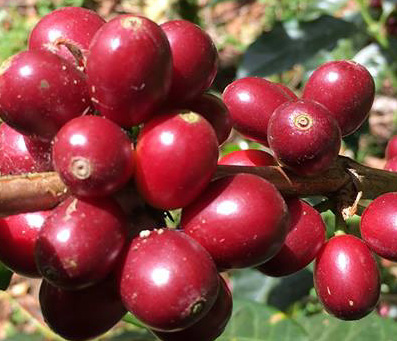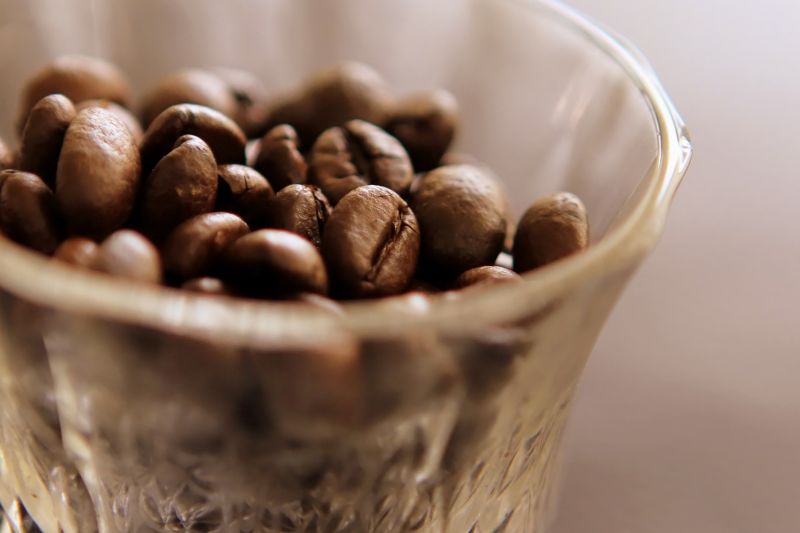What is "talking about boutique coffee"? What kind of coffee can be regarded as fine coffee?

For professional baristas, please follow the coffee workshop (Wechat official account cafe_style)
For more than a decade, people have often asked me: what is fine coffee? What kind of coffee can be regarded as fine coffee? Not long ago in the essay "introduction to two Top Manors", I specifically mentioned that this issue is very controversial, so I will talk about it in this essay.
Literally, the word "boutique" gives people the impression of being "superior". In the coffee world, it means great commercial benefits hidden behind. So first of all, let's figure out, where does the word come from?
Boutique coffee is a Chinese translation from specialty coffee. Strictly speaking, the translation is not very accurate, and it may even be deliberately inaccurate, because literally, specialty coffee refers to "coffee with a special flavor", and Erna Knutsen, who coined the word, also refers to the same meaning (see later). Although the coffee with this name does have a better flavor than ordinary coffee, I still think it is a bit far-fetched to use the word "boutique". Just because the term "boutique coffee" has been widely used in Taiwan, this article has to make do with it for the time being.
Before we talk about boutique coffee, let's tell a true short story.
My daughter graduated from high school that year and was admitted to a national university in central China. When I returned home during the winter vacation, I found that in just one semester, she had changed from a childish little girl to a graceful and lovely girl. In addition to sighing the traces left by the years on my family and myself, I can't help but feel relieved that "my family has a daughter who is just growing up." At that time, the family's financial situation was still good, and the timing was close to New Year's Eve, so I decided to take her to buy a set of clothes that looked good. On the one hand, she let her daughter show her girlish beauty. On the other hand, when she accompanied her wife back to her mother's house on the second day of the Lunar New year, her uncles and aunts must be full of praise, which will add a lot of vanity to my father.
Being determined, I chose one day, took my daughter into the department store and went straight to the floor of "Young Lady" to start the journey of looking for clothes. At that time, I was very confident about my aesthetic, because every time I chose clothes for my wife, I could win my wife's praise (is this her strategy? I'm a little skeptical now. I think, with the same aesthetic and regardless of banknotes, we will be able to buy clothes that satisfy our daughter.
I walked along the counters one by one, and finally, in front of a cabinet specializing in imported clothing, I saw a set of girl clothes that brightened my eyes. I sketched in my mind what my daughter looked like when she put it on. I thought it was so beautiful, so I couldn't help myself. I brought my daughter, who was looking at clothes from other cabinets, pointed to my favorite target and asked her if she liked it. I thought her reaction must be as excited as mine, but unexpectedly, my daughter poured cold water on me and said, "that's what an old woman wears."
It may be hard for readers to imagine my shock at that time. Old woman, how can these three words have anything to do with the youthful clothes in front of me? Unable to help her curiosity, she asked her daughter carefully why she thought the dress was worn by an "old woman". The daughter's answer is that only seniors in her senior or master's class can wear this style of clothes. Obviously, those 23-and four-year-old ladies who are still young in my eyes have already been included in the list of "old women" of their daughters. I wondered at that time, in my daughter's mind, what is the difference between an old woman and a young girl? So he asked her whether a 17-or 18-year-old woman was old or young. She said with certainty: young! I then asked her, what about 23 or four years old? She immediately replied: old. I ask again, what about 21 or two years old? She hesitated a little, thought for a moment, and replied: a little old. I finally asked her, so what is the dividing line from the young 17 or 18 to the "a little old" 21 or two? In other words, you are young before a few years old, and you have been "a little old" since then. The daughter finally stopped talking.
At this point in the story, I believe the reader has guessed what I mean: yes, what I asked my daughter is a question that no one can answer accurately. Just imagine, some of the words we usually use come from feelings, such as "young", "beautiful", "delicious" and so on. Which one can give a precise definition? Take "beautiful" for example, except for a few beautiful women who can be recognized by most people, there are some women who you may think are beautiful, but others may not think they are beautiful. For example, when I praise the beauty of a woman, I am often denied by my wife. So, what is boutique coffee? What kind of coffee can be regarded as fine coffee? It is also a question that no one can answer accurately.
What I said must make many people in the coffee industry angry, because there are already many coffee shops in Taiwan that boast that they only sell boutique coffee. today, if they cannot even come up with a standard to decide whether a type of coffee is a "boutique" or not, it is really unbearable for teachers!. However, this is indeed the case. I can only comfort angry operators: not to mention everyone, even the SCAA (American Fine Coffee Association), which first used the word "boutique coffee" and thus set up a formal organization, also failed to come up with a standard, do not believe it? Take a look at the instructions below.
According to Don Holly, the then executive director of SCAA in 1999, the term specialty coffee was coined in 1978 by Erna Knutsen (some Taiwanese businessmen call her "coffee godmother"). At that time, she described it as coffee with a special flavor from a unique geographical environment and microclimate. According to her observation, not all coffee has the same flavor, and the coffee that is different and has a good flavor is specialty coffee. Four years later, the second year after I left the United States and returned to Taiwan, SCAA was officially established in 1982.
SCAA (Specialty Coffee Association of America), with specialty coffee as its signature, must be often asked, "what is fine coffee?" How do they answer this question? Below, I will pick out two of the various answers and translate them into Chinese for readers to ponder (see (note)).
Don Holly (Executive Director of SCAA in 1999): boutique coffee is not just coffee that tastes not bad; to be regarded as boutique coffee, it must be very good coffee. After all, only when tasting the coffee in the cup can we judge whether it is fine coffee or not. (note 1)
Ric Rhinehart (Executive Director of SCAA 2009): in the final analysis, boutique coffee is defined by the quality of the product, whether it is raw beans, cooked beans or prepared drinks, as well as the quality of life of all those involved in growing, processing and tasting coffee. (note 2)
I don't know how readers react to these two answers, but personally, I think Don Holly's answer is nothing but "coffee that feels great when drinking is fine coffee"; as for Ric Rhinehart's answer, I think it's even more outrageous, he even includes the quality of life of all people who engage in coffee in the category of fine coffee. Of course, those workers engaged in coffee (including small coffee farmers, pickers, etc.) should not be exploited, should be reasonably paid and enjoy a certain quality of life, but this belongs to the level of moral or social justice. Mechanisms such as fair trade and direct trade can be designed to protect them, but their quality of life is also linked to the flavor of coffee. I feel a little strange no matter how I look at it.
Finally, in 2009, SCAA set a condition for raw coffee beans to reach specialty coffee: a cup test score of no less than 80 points. This finally adds a "quantitative" and more scientific objective standard to the subjective description of "different, good flavor", which is only "qualitative" in the mouth of Erna Knudsen. Careful readers will find that "cup test score of no less than 80 points" is only a "necessary condition", not a "sufficient and necessary condition"; in other words, coffee with a score below 80 is not allowed to enter the ranks of fine coffee, while coffee with a score higher than 80 is not guaranteed to be fine coffee, and it is still up to consumers to decide whether it can be regarded as fine coffee. There are, of course, other problems. For example, is a coffee with a score of 79.98 necessarily inferior to a boutique coffee with a score of 80? Also, who has the qualified qualification? Are those Q-grader (coffee quality appraisers) who have passed the SCAA certification standard and have paid expensive testing fees to obtain a license? Even they don't see eye to eye on the quality of coffee (otherwise why calculate the GPA? Only one thing is relatively uncontroversial, that is, if a coffee can get an average score of more than 80 after multiple Q-grader identification, its flavor and quality must have a certain level.
Although I don't think there is (and probably never will be) an absolute standard to determine which coffee can be classified as boutique coffee: just as we cannot set a convincing threshold for "young" and "beautiful" But basically I am quite sure of the boutique coffee craze led by SCAA, because today's coffee world has changed with this trend, and the change is in a positive direction.
I remember that before the 1980s, although coffee was already a popular world-class drink, except for a few that were recognized as very good and expensive, such as the Blue Mountains of Jamaica and Kona of Hawaii, or of higher quality than the average, such as Manning in Sumatra and Matali in Yemen, basically, the difference in the flavor and price of coffee is not obvious. And during that period, coffee was sold mostly by region rather than by variety, such as Brazil, Guatemala, mocha, etc., or slightly finer, such as Brazilian Santos, Guatemala Antigua, mocha Matali, and so on. An important reason for this is that in the same region, there are usually only a few varieties selected (such as Typica, Bourbon, Catura, etc.), and the soil and climate conditions in the same region are relatively similar, so the flavor of the coffee produced is not much different. But since the rise of the concept of boutique coffee, consumers are willing to pay much more than commercial coffee to buy coffee with outstanding flavor, which provides coffee farmers with a strong motivation. The reason is very simple: good coffee can be sold at a good price! As a result, coffee farmers began to carefully select different varieties according to their unique geographical environment and microclimate, and tried to refine each production link, including fertilization, harvest, treatment, and so on, so that individualization became more and more obvious. the flavor of different estates in the same producing area can be very different. This is certainly a blessing for those who pursue good coffee (such as our members of the May 4th Coffee Club), because unlike those who could only choose from a limited number of coffees in those days, the coffee that you can choose now is already a colorful world. Of course, relatively speaking, the previously unimaginable high price has also appeared in some boutique coffee, want to drink delicious coffee at an affordable price, that kind of good days, probably gone and never return.
[note 1] It is not only that the coffee doesn't taste bad; to be considered specialty it must be notably good... Specialty coffee is, in the end, defined in the cup.
[note 2] In the final analysis specialty coffee will be defined by the quality of the product, weather green bean, roasted bean or prepared beverage and by the quality of life that coffee can deliver to all of those involved in its cultivation, preparation and degustation.
Important Notice :
前街咖啡 FrontStreet Coffee has moved to new addredd:
FrontStreet Coffee Address: 315,Donghua East Road,GuangZhou
Tel:020 38364473
- Prev

Have a cup of coffee by hand! Choose coffee beans according to your own taste
For professional baristas, please pay attention to the coffee shop (Wechat official account cafe_style). There are plenty of coffee beans on the market. If you don't have a specific hobby for coffee, you must be dazzled by the price list. It is suggested that you might as well know which flavor of coffee you like, whether it is heavy flower, heavy fruit, or light taste, and then ask the store to recommend it so as not to make a random purchase. Compared to
- Next

Can drinking individual coffee and hanging-ear coffee lead to osteoporosis?
Professional baristas Please follow the coffee workshop (official Wechat account cafe_style) worried about bone loss, which may be the main reason why many women are "looking forward to but afraid of being hurt" about coffee. Coffee has always been considered to be a risk factor for osteoporosis. Because its diuretic effect increases water excretion in the body, previous studies have found that caffeine increases calcium in urine.
Related
- Beginners will see the "Coffee pull flower" guide!
- What is the difference between ice blog purified milk and ordinary milk coffee?
- Why is the Philippines the largest producer of crops in Liberia?
- For coffee extraction, should the fine powder be retained?
- How does extracted espresso fill pressed powder? How much strength does it take to press the powder?
- How to make jasmine cold extract coffee? Is the jasmine + latte good?
- Will this little toy really make the coffee taste better? How does Lily Drip affect coffee extraction?
- Will the action of slapping the filter cup also affect coffee extraction?
- What's the difference between powder-to-water ratio and powder-to-liquid ratio?
- What is the Ethiopian local species? What does it have to do with Heirloom native species?

